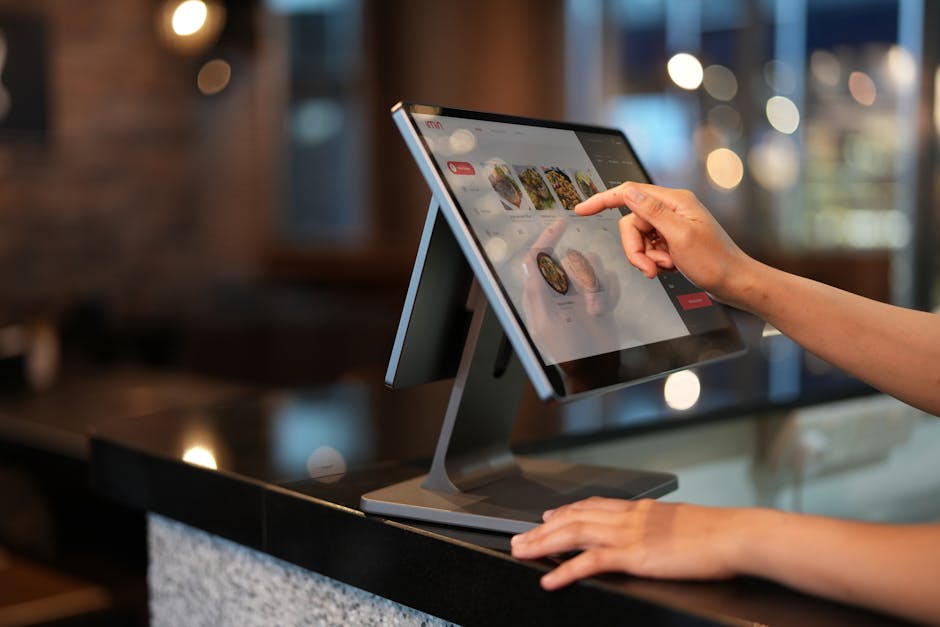POS Software That Streamlines Business Transactions
Managing sales transactions can sometimes feel like juggling a dozen spinning plates. One wrong move, and chaos ensues. That’s where a robust Point of Sale (POS) system steps in, transforming what could be a logistical nightmare into a seamless, efficient process. But what exactly makes POS software the backbone of modern business transactions? Let’s unpack it.
The Foundation of an Efficient POS System
A well-designed POS system does more than simply process payments.

Think of it as the central nervous system of your business operations. It links inventory management, customer data, sales tracking, and even employee scheduling into one cohesive unit. Imagine owning a small café. Every latte sold not only updates your daily revenue but also deducts milk, coffee beans, and cups from your stock. This level of automation ensures you’re never caught off guard with empty shelves during peak hours.
According to a report by Statista (statista.com), the global POS software market was valued at over $13 billion in 2022 and is projected to grow steadily. This growth underscores how integral such systems have become for businesses of all sizes, from mom-and-pop stores to multinational chains.
Key Features That Simplify Transactions
Not all POS systems are created equal. The magic lies in choosing software that aligns with your specific business needs. Here are some standout features that can significantly improve how you handle transactions:
- User-Friendly Interface: A cluttered or overly complicated interface can slow down operations and frustrate employees. Look for software that prioritizes ease of use without compromising functionality.
- Cloud Integration: Cloud-based POS systems offer the flexibility to access your data anytime, anywhere. This feature is especially valuable for businesses with multiple locations or managers who work remotely.
- Mobile Payment Options: With the growing popularity of contactless payments and digital wallets like Apple Pay and Google Pay, having a POS system that accommodates these methods is practically mandatory.
- Inventory Tracking: Real-time inventory updates are invaluable for reducing waste, managing stock efficiently, and identifying trends in product demand.
- Customer Relationship Management (CRM): Many POS systems integrate CRM tools that allow businesses to track customer preferences and habits. Loyalty programs can be easily managed through these platforms, encouraging repeat visits.
Take Square POS (squareup.com) as an example. Its sleek design and intuitive dashboard make it particularly popular among small business owners who need a plug-and-play solution without the complexity of larger systems.
Real-World Applications: From Retail to Hospitality
The versatility of POS software extends across various industries, each with its own unique requirements:
- Retail: For clothing boutiques or electronics stores, a robust POS system helps manage seasonal inventory shifts, track returns, and analyze sales patterns to optimize pricing strategies.
- Hospitality: Restaurants rely on POS systems for table management, split billing, and even kitchen display systems that streamline order preparation. A delay in serving hot food due to miscommunication? Not on their watch!
- Service-Based Businesses: Think salons or repair shops, these businesses often require appointment scheduling integrations alongside payment processing capabilities. A good POS system will cater to this dual need effortlessly.
An excellent example here would be Toast POS (toasttab.com). Designed specifically for restaurants, it offers features like customizable menu layouts and real-time sales tracking, perfect for busy kitchens trying to keep up with high customer turnover.
The Importance of Security and Compliance
If there’s one area where businesses can’t afford shortcuts, it’s security. With cyberattacks on the rise, safeguarding customer data should be non-negotiable. Look for POS software that complies with Payment Card Industry Data Security Standard (PCI DSS) regulations and uses encryption protocols to protect sensitive information during transactions.
A study by Verizon (verizon.com) highlights that 43% of small businesses experience data breaches at some point, a stark reminder that investing in secure technology isn’t just optional; it’s essential for maintaining trust with your customers.
Choosing the Right System for Your Business
The process of selecting a POS system might feel like navigating a labyrinth with endless choices at every turn. But understanding your priorities can make the decision much simpler. Here are some questions worth considering:
- What’s Your Budget? While some systems like Square offer free basic plans with transaction fees, others may charge upfront costs plus monthly subscriptions.
- What Are Your Core Needs? Do you require advanced inventory tracking? Is mobile payment compatibility crucial? Identifying must-have features narrows down your options quickly.
- Will It Scale? If you’re planning for growth (whether that means expanding product lines or opening new locations) ensure your chosen system can scale alongside you without requiring a complete overhaul later.
A great way to test out different platforms is by taking advantage of free trials offered by most providers. This hands-on experience can reveal whether the software genuinely fits into your daily operations or if it creates more hurdles than it clears.
The right POS software doesn’t just streamline business transactions, it empowers you to focus on what truly matters: building relationships with customers and growing your brand. By taking the time to research and invest in a system tailored to your needs, you’re setting yourself up for long-term success rather than short-term fixes.
